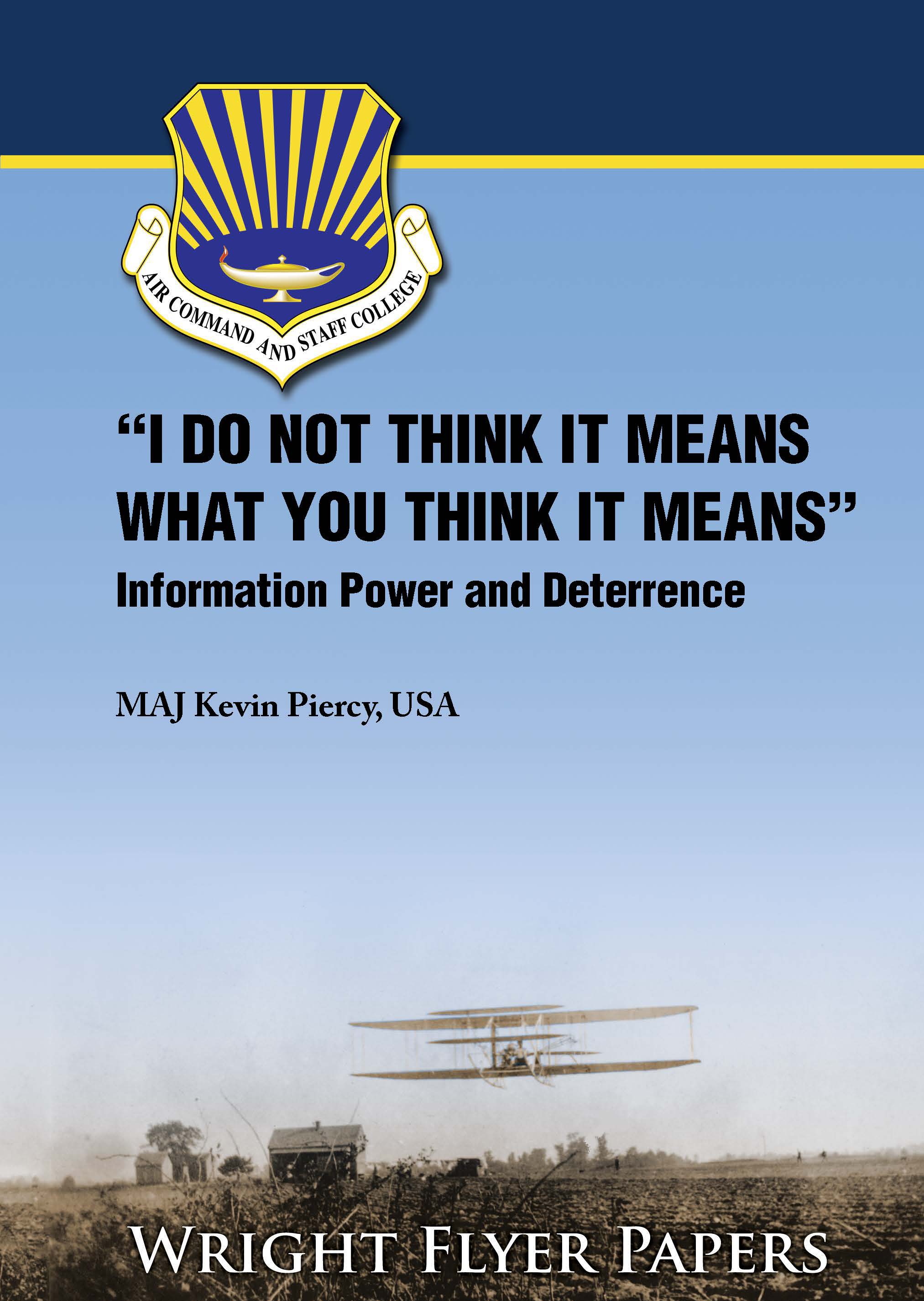 Could a state win a crisis without fighting? Under what conditions does a state’s use of information power ease—or complicate—its ability to achieve its objectives in a crisis? The author answers these questions by offering a new definition of a state’s information power: an interaction between data collection, data protection, and data transmission capabilities to influence a desired population. Based on this definition, this paper discusses how coordinated and synchronized use of words and actions can help a state reach its defensive compellence or immediate deterrence objectives. Case studies of the 1995–1996 Taiwan Strait Crisis and the 2014 Sino-Vietnamese Oil Rig Crisis underpin the research. The author proposes that to become more effective at using information power in deterrence, the US must learn from its mistakes and improve its data handling. Integrating data across the diplomatic, informational, and economic instruments of power—rather than relying solely on the military for deterrence actions—is an inherent requirement. If the US hopes to subdue its enemies without fighting, it must fundamentally update its approach to information power and deterrence.
Could a state win a crisis without fighting? Under what conditions does a state’s use of information power ease—or complicate—its ability to achieve its objectives in a crisis? The author answers these questions by offering a new definition of a state’s information power: an interaction between data collection, data protection, and data transmission capabilities to influence a desired population. Based on this definition, this paper discusses how coordinated and synchronized use of words and actions can help a state reach its defensive compellence or immediate deterrence objectives. Case studies of the 1995–1996 Taiwan Strait Crisis and the 2014 Sino-Vietnamese Oil Rig Crisis underpin the research. The author proposes that to become more effective at using information power in deterrence, the US must learn from its mistakes and improve its data handling. Integrating data across the diplomatic, informational, and economic instruments of power—rather than relying solely on the military for deterrence actions—is an inherent requirement. If the US hopes to subdue its enemies without fighting, it must fundamentally update its approach to information power and deterrence.
Author(s) • Major Kevin Piercy
Year • 2023
Pages • 32
ISSN • 2687-7260
AU Press Code • WF-92